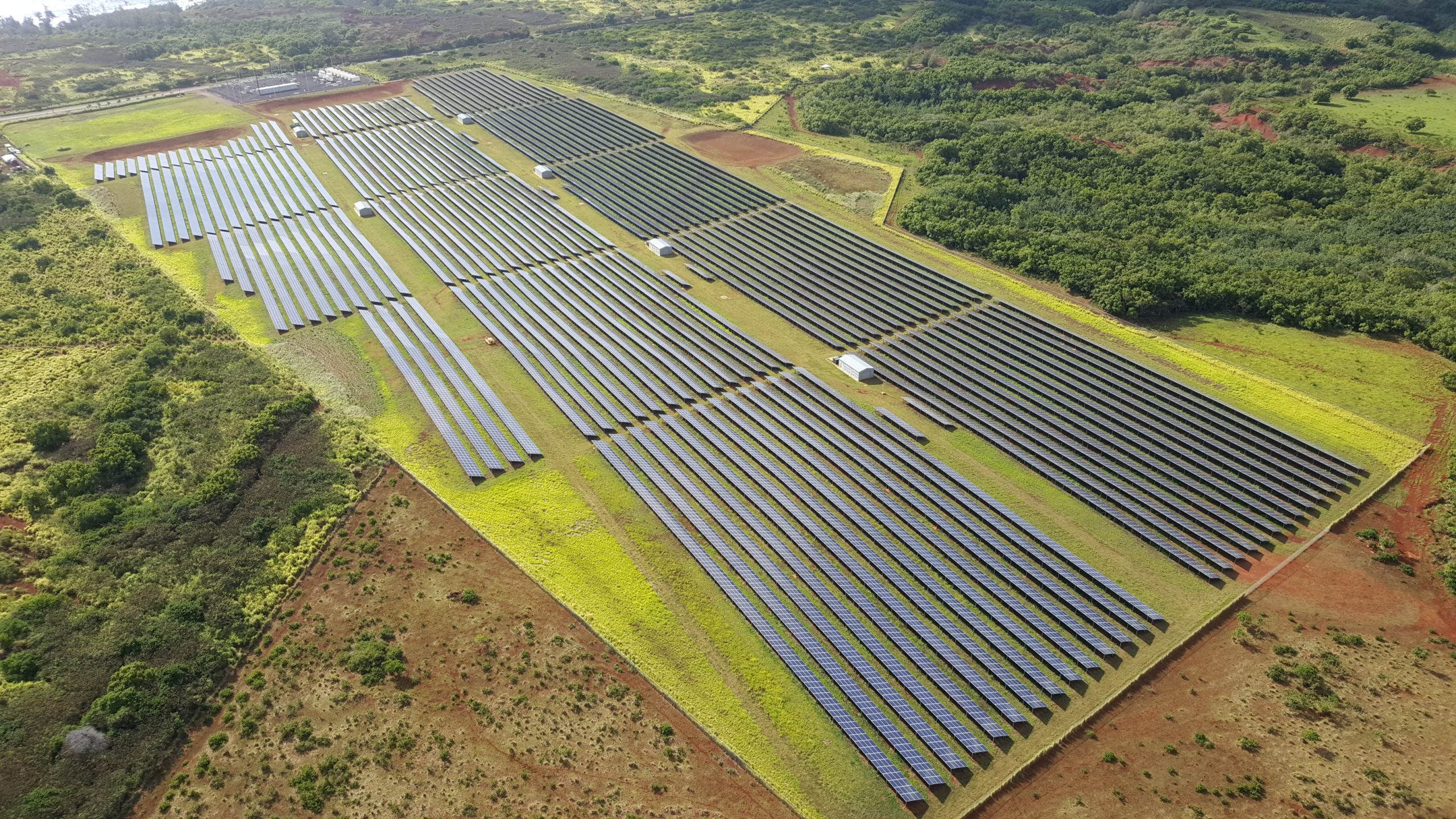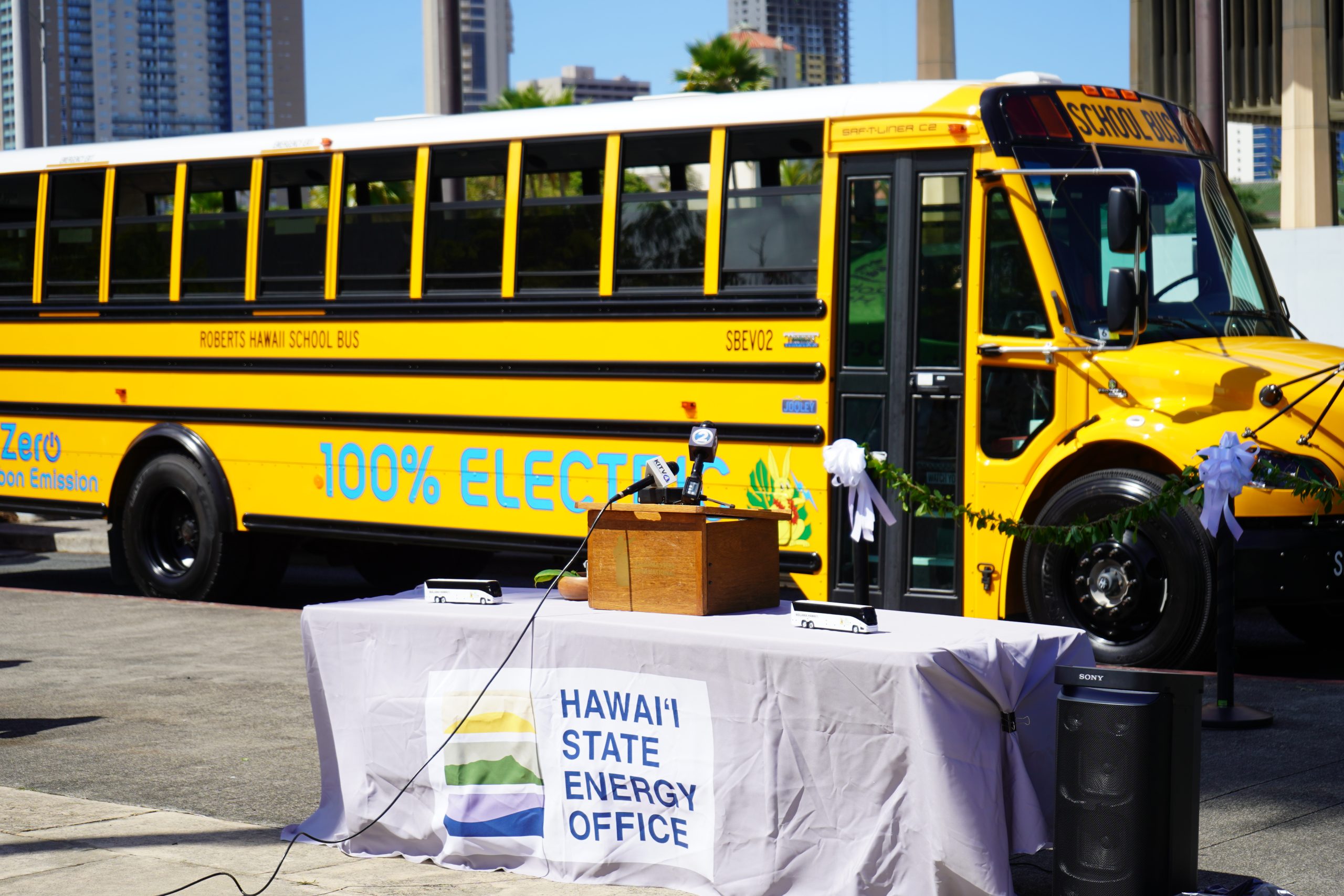HAWAI‘I STATE ENERGY OFFICE AND KAUA‘I ISLAND UTILITY COOPERATIVE RECEIVE FEDERAL SUPPORT FOR INNOVATIVE TECHNOLOGY DEMONSTRATION PROJECTS
Projects will boost reliability and support utility’s goal of reaching 100% renewable energy with in 10 years
LIHUE, Hawai‘i – The U.S. Department of Energy today announced two technology demonstration projects proposed by the Hawai‘i State Energy Office (HSEO) in partnership with Kaua‘i Island Utility Cooperative (KIUC) will receive more than $17.9 million in funding through the Grid Resilience and Innovation Partnerships (GRIP) Program.
Both projects leverage existing power generation equipment with new technology to expand dispatchable renewable energy and support reliable island grid operation among other benefits. Together these solutions will enable KIUC to achieve its goal of 100% renewable energy within the next 10 years.
“Kaua‘i is proving that transitioning to locally produced renewable energy alleviates the energy burden for families and businesses by reducing extreme price volatility,” said Governor Josh Green, M.D. “We are grateful to the Biden Administration for supporting these projects, which we believe will showcase how these technologies can achieve similar benefits on other islands.”
“HSEO is excited to be working with KIUC to implement these innovative solutions to bring solar grid forming and synchronous condenser conversion technologies to Hawai‘i,” said Hawai‘i Chief Energy Officer Mark B. Glick. “These projects will provide significant community benefits by adding value to existing renewable resources, providing opportunities for additional renewables, reducing the frequency and impact of power disruptions, and further decarbonizing the grid by reducing fossil generation.”
“At 60% renewable generation, KIUC’s transition has not only resulted in significant greenhouse gas reductions, it has also saved our members millions of dollars over the past few years through stabilized electricity rates that are no longer vulnerable to spikes in oil pricing,” said KIUC’s President and Chief Executive Officer, David Bissell.
The projects are scheduled to begin in early 2024 with an estimated completion date in mid-2025.
About the projects:
The Utility Solar Grid Forming Technology (USGFT) and Synchronous Condenser Conversion Technology (SCCT) demonstration projects will be funded in part through the Grid Resilience and Innovation Partnerships (GRIP) Grid Innovation Program of the Grid Deployment Office, Office of Clean Energy Demonstrations.
Utility Solar Grid Forming Technology
The GRIP program will provide half of the total cost-shared project estimated at $32.5 million, with KIUC contributing the other half of the total project cost.
The USFGT project involves an innovative technology application that demonstrates a technological solution for expanded renewables dispatch and reliable island grid operation. The project adds battery storage and advanced grid forming inverters to two existing solar power plants. This will create a hybrid power supply with enhanced dispatchability, greater resource availability, and will provide important ancillary services including frequency regulation, reactive power and voltage control, and operating reserves. The grid regulation service will provide significant regional and community benefit by furthering the capability of the system to accommodate 100% dispatch of renewable generation sources and provide a more reliable and resilient island grid.
Click here to read the U.S. Department of Energy’s Grid Deployment Office fact sheet on the project.
Synchronous Condenser Conversion Technology
The GRIP program will provide half of the cost-shared project of $3.35 million, with KIUC contributing of the remaining half of the total project cost.
This innovative project adds grid-forming capability to an existing generator at the Port Allen power station to accommodate stable operation of high penetration distributed variable renewable generation on the Kaua‘i electric grid. The project will provide significant regional and community benefits by reducing the likelihood and consequence of disruptive events to the grid, and provide a reference case for duplication of the conversion technology by others. This novel use of grid-forming technology in a grid of this size will demonstrate a replicable solution for local, regional, and interregional grid enhancement and decarbonization.
Click here to read the U.S. Department of Energy’s Grid Deployment Office fact sheet on the project.
The Kaua‘i projects and a previously announced award to Hawaiian Electric are among the recipients of the largest-ever investment in America’s energy grid announced today.
###


